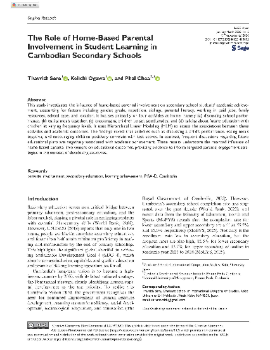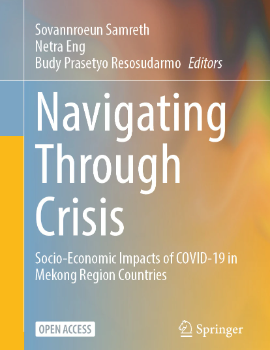
The Reversal of Gender Gap in Learning: Why Boys Are Falling Behind in Upper Secondary Schools
Keyword: Gender gap reversal, boys’ educational performance, learning disparities, inclusive education policies, gender-responsive interventions
Abstract/Summary
This study investigates the reversal of the gender gap in academic performance in Cambodia’s upper secondary schools, where female students now consistently outperform their male peers. Employing a convergent parallel mixed-methods design, the research combines qualitative interviews and focus group discussions with quantitative surveys across 23 schools. Findings reveal that girls exhibit stronger self-discipline, study habits, and classroom engagement, while boys are more susceptible to distractions from digital entertainment, peer pressure, and economic responsibilities. Socioeconomic challenges, such as financial constraints and limited parental oversight, disproportionately affect boys, contributing to absenteeism and lower academic commitment. School-level factors—including inadequate curriculum delivery, lax enforcement of discipline, and inequities in private tutoring—further exacerbate disparities. Cultural norms granting boys greater freedom also influence their behavior and learning outcomes. The study recommends targeted interventions, including enhanced parental and community engagement, structured sports programs, need-based financial support, and expanded counselling services. It also calls for improved school accountability and the strategic use of technology in education. By addressing these multifaceted factors, Cambodia can foster equitable academic success and reduce gender-based disparities in learning.



